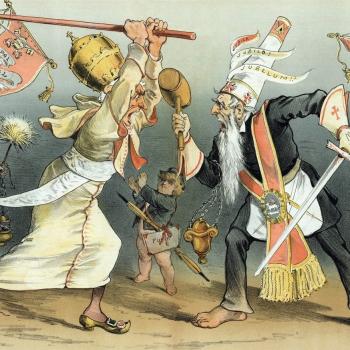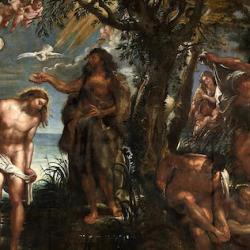In his book on The Gospel Commission, Michael Horton includes several insightful pages on baptism. “Like circumcision,” he writes, “baptism is represented in the New testament as God’s decision and claim on us. Although it obligates us to respond in faith and obedience, baptism is God’s sign and seal of his covenant oath. in this act, as in the preached Word, God pledges his commitment to us” (172). Instead of seeing baptism as a sign of my choice of God, it is God’s act toward us.
This shift of perspective has enormous practical consequences: “When baptism is understood chiefly as a promise that I made on a certain date in the past, it loses its relevance for my life in the presence, as God’s saving promise to which I continually return. . . . When faced with confusion, temptation, or doubt, I cling not to a decision that I made but to Christ’s public certification that he has claimed me and will not let me go. He will not forsake me, and he will not allow me to surrender myself to another lord who would bind and destroy me” (173-4). When baptism is neglected, “you can gain the impression that Jesus has to take you out of the church, alone in a garden, to really experience his grace. However, according to Scripture, the public ministry of the church is the garden!” (174).
He cites a conversation he had with a youth minister: “You ministries are so important, he said, because they relate to kids on their own level, ‘where they are.’ ‘That’s just it, isn’t it?’ I asked. ‘Where are they?” Presumably, their location is ‘in Christ.’ They are baptized and are therefore members of the visible body of Christ, the covenant community. That’s their primary location” (174).














